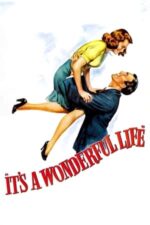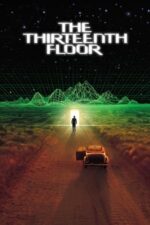Beyond Reality: When Worlds Shift & What That Tells Us About Ourselves
Okay, let’s talk about alternative realities. It's a concept that’s been bouncing around in our collective imagination for decades – from philosophical thought experiments to blockbuster sci-fi. And it’s fascinating because at its core, exploring alternative realities isn’t just about cool visuals or mind-bending plot twists; it’s about holding up a mirror to ourselves and asking, "What does 'real' even mean?"
Think about It’s a Wonderful Life. Now, that might seem like an odd starting point for a discussion on alternate realities. But consider the “what if” scenario George Bailey faces – what if he hadn’t been born? The film doesn’t present a parallel universe in the traditional sense, but it vividly demonstrates how drastically different one community can be based on the absence of just one person. It's a powerful illustration of how our choices and actions ripple outwards, creating realities we might never fully comprehend. I remember watching that as a kid and being genuinely shaken by the bleakness of Bailey Park – it really made me appreciate the impact even seemingly ordinary lives can have.
The concept gets significantly more complex with films like The Lathe of Heaven. This one is seriously unsettling, because it tackles the idea of reality being malleable, shaped by dreams. The sheer terror of George Orr’s situation—his subconscious altering the world in unpredictable and often disastrous ways—is a potent commentary on the dangers of unchecked power, even if that power originates from within ourselves. It makes you wonder: who gets to decide what's "better"?
Then there's Nirvana, which dives into the blurring lines between virtual reality and lived experience. We’ve all had moments where we get completely lost in a game or a book, feeling more connected to those fictional worlds than our own. Nirvana takes that sensation and cranks it up to eleven, exploring the responsibility creators have when their creations start taking on a life of their own – a question that feels increasingly relevant with the rise of AI art and sophisticated virtual environments.
And let's not forget The Thirteenth Floor, which plays with nested realities in a truly dizzying way. It’s a film that demands you pay attention, constantly questioning what is genuine and what is simulation. It really taps into our anxieties about authenticity in an increasingly mediated world – something we grapple with daily thanks to social media!
Finally, Pleasantville offers a more whimsical but equally insightful take. By dropping modern sensibilities into a rigidly structured 1950s sitcom reality, the film exposes the limitations and potential for growth within any established system. The gradual introduction of color isn't just visually striking; it represents the eruption of individuality and emotion that challenges the status quo.
Ultimately, films exploring alternative realities aren’t about escapism (though they can be entertaining!). They’re invitations to examine our own assumptions about what is real, what is possible, and what kind of world we want to create – whether in our dreams, our games, or our everyday lives. So next time you're looking for something that will really make you think, dive into one of these—you might just see your own reality a little differently afterward.






































